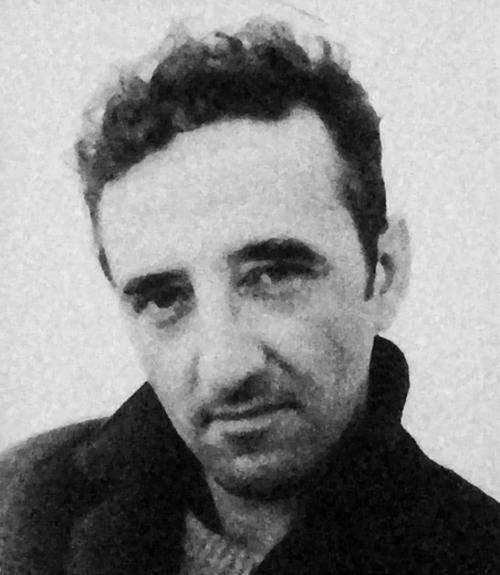 I’m a little late to this literary fracas, but I read The Savage Detectives last year & am interested in its success in the U.S…
I’m a little late to this literary fracas, but I read The Savage Detectives last year & am interested in its success in the U.S…
I came across this essay in Guernica by Honduran writer Horacio Castellanos Moya today… It’s extremely critical about the way Bolaño was marketed and canonized in a most calculating way by the U.S. (“North American”) publishing industry, starting with the publication of The Savage Detectives. According to Moya, they reduce him into a typical image of a James Dean, Jim Morrison, Jack Kerouac-type character, South American style. The novel was anointed as the next go-to impression for Americans to have of Latin America, because Garcia Marquez was getting old. Moya relies quite a bit on a paper written by a professor at City University of New York, Sarah Pollack:
“The novelty for the American reader is that he will come away with two complementary messages that appeal to his sensibility and expectations: on one side the novel evokes the ‘youthful idealism’ that leads to rebellion and adventure. But on the other side, it can be read as a morality tale, in the sense that ‘it is very good to be a brazen rebel at sixteen years old, but if a person doesn’t grow and change into an adult person, serious and established, the consequences can be tragic and pathetic.”
And the last paragraph:
“What isn’t the fault of the author is that American readers, with The Savage Detectives, want to confirm their worst paternalistic prejudices about Latin America, as Pollack’s text says, like the superiority of the Protestant work ethic or the dichotomy according to which North Americans see themselves as workers, mature, responsible, and honest, while they see their neighbors to the South as lazy, adolescent, reckless, and delinquent. Pollack says that from this point of view The Savage Detectives is ‘a very comfortable choice for U.S. readers, offering both the pleasures of the savage and the superiority of the civilized.’ And I repeat: nobody knows for whom it works. Or as the poet Roque Dalton wrote: ‘Anyone can make the books of the young Marx into a light eggplant puree. What is difficult is to conserve them as they are, that is to say, as an alarming ants’ nest.’”
The subsequent comments make excellent points, and I am probably subsuming some of them into my thoughts on this essay:
(1) I don’t think anyone who actually read The Savage Detectives has paternalistic prejudices against Latin America. Readers of Isabel Allende might be better cast in this role.
(2) What’s wrong with a literary, rather dazzling Latin American novel becoming a (relative) blockbuster? Don’t all literary novels that sell well depend on the mythologizing of their authors? The criticism of marketing might be valid if the book was not so good, or if the author hadn’t participated in his own mythologizing (not via the publisher, but the way he handled the relationship between his life & his fiction).
(3) If his problem is that Americans he meets can only name 1 or 2 Latin American writers, his beef with the publishing industry shouldn’t be the marketing of Bolaño but the fact that publication (& promotion) of literature in translation is so rare in the U.S.
(4) The publishing industry in Latin America engages in the same nefarious marketing practices.
(5) Moya complains that the publisher never mentions that Bolaño wrote the novel when he was a stable family man, and instead promotes the image of him as rebellious youth…. But Bolaño himself began his mythologizing. And there IS so much of his early, rebellious youth in the novel – the biographical similarities aren’t an invention of the publishing industry. He inserts so much of himself into Savage Detectives, it’s difficult not to think that so much of it is about Bolaño the person when you’re reading it (the character Arturo Belano even has a similar name and background).
6) Talk about paternalistic. The tone of the writing is so insufferable, he is so unequivocally right in his own mind – it’s intended to make the reader feel inadequate & ignorant (if the reader is “North American”) or smug about how awful capitalistic Americans are (if the reader is an Argentine reading it in the Argentine newspaper where it was originally published). I am writing that as someone who grew up in Latin America & the U.S. & is therefore bicultural & bilingual…
(7) OK, yes, he does raise a good point that it would be nice if U.S. publishers, media & readers looked beyond what was fed to them. If U.S. readers like Bolaño, they would probably like a lot of other Latin American writers & wouldn’t just have to refer to him or Garcia Marquez…
For anyone interested in this discussion, many U.S. journals (The New Yorker, Harper’s, etc.) responded to Moya’s essay. The translator of the essay, Robert P. Baird, has compiled links to them on his website.
What I would really like to read is some insight into the novel. Friends I’ve talked to who have read it liked it, but find it difficult to talk about what makes the novel good, or what it made them think about. I was overwhelmed by it myself, felt like I needed to revisit it.
